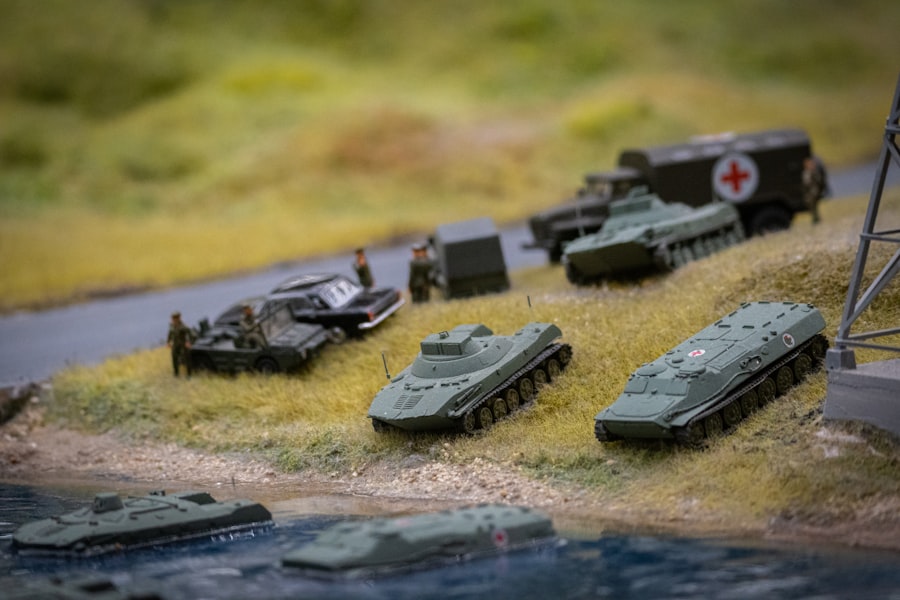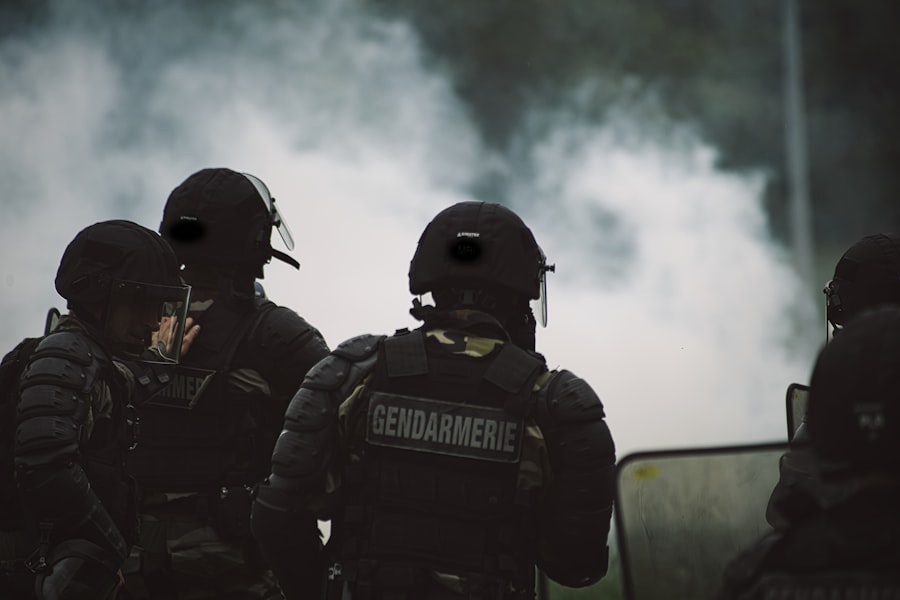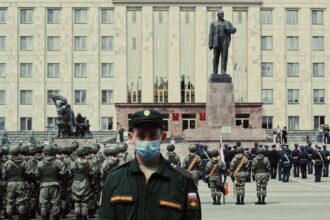Corruption within military institutions is a pervasive issue that undermines the integrity and effectiveness of armed forces worldwide. It manifests in various forms, including bribery, embezzlement, favoritism, and procurement fraud. Such malpractices not only compromise operational readiness but also erode public trust in military establishments.
The ramifications of corruption extend beyond the immediate context of military operations, affecting national security and governance. As nations grapple with the complexities of modern warfare, understanding the roots and consequences of corruption in the military becomes increasingly critical. The military is often viewed as a bastion of discipline and honor, yet the reality can be starkly different.
Corruption can infiltrate even the most esteemed institutions, leading to a culture where unethical behavior becomes normalized. This article aims to explore the historical context of military corruption, its effects on morale and trust within the ranks, and its broader implications for civilian-military relations. By examining these facets, one can appreciate the urgent need for effective strategies to combat corruption and restore integrity within military organizations.
Key Takeaways
- Corruption in the military has a long history and can have detrimental effects on morale, equipment, leadership, decision-making, combat effectiveness, and civilian-military relations.
- Historical examples, such as the rampant corruption in the Roman army, highlight the negative impact of corruption on warfare throughout history.
- Corruption can significantly undermine military morale, leading to decreased trust, loyalty, and motivation among soldiers.
- Corruption within equipment and supply chains can result in substandard or inadequate resources, ultimately compromising the military’s ability to perform effectively.
- Erosion of trust within the ranks due to corruption can lead to a breakdown in communication, teamwork, and overall cohesion within the military.
Historical Examples of Corruption in Warfare
Throughout history, numerous instances of corruption have marred military operations and governance. One notable example is the corruption that plagued the Roman military during the late Republic and early Empire. As generals amassed power, they often engaged in corrupt practices such as bribing soldiers for loyalty or misappropriating funds meant for troop supplies.
This not only weakened the military’s effectiveness but also contributed to political instability, as rival factions vied for control over resources and loyalty. Another significant case is found in the context of World War II, particularly within the Soviet Union. The procurement processes for military supplies were riddled with corruption, leading to severe shortages of essential equipment for soldiers on the front lines.
Reports of officials embezzling funds intended for military supplies were rampant, resulting in dire consequences for troops who were ill-equipped to face their adversaries. Such historical examples illustrate how corruption can compromise not only military effectiveness but also the very fabric of a nation’s defense strategy.
The Effects of Corruption on Military Morale

Corruption has a profound impact on military morale, often leading to disillusionment among service members. When soldiers perceive that their leaders are engaging in corrupt practices, it can foster a sense of betrayal and cynicism. This erosion of trust can diminish motivation and commitment to the mission at hand.
Soldiers may feel that their sacrifices are undervalued when they witness resources being squandered or misappropriated by those in positions of power. Moreover, corruption can create an environment where meritocracy is undermined. When promotions and assignments are influenced by favoritism rather than competence, it can lead to resentment among personnel.
This discontent can manifest in decreased cohesion within units, as soldiers become more focused on self-preservation rather than collective goals. Ultimately, a demoralized military is less effective in achieving its objectives, which can have dire consequences during critical operations.
Corruption’s Impact on Equipment and Supply Chains
| Impact | Description |
|---|---|
| Increased Costs | Corruption can lead to inflated prices for equipment and supplies, increasing overall costs. |
| Quality Compromises | Corruption may result in substandard equipment and supplies being used, compromising quality. |
| Delayed Deliveries | Corruption can lead to delays in the delivery of equipment and supplies, impacting operations. |
| Unreliable Suppliers | Corruption may lead to reliance on unreliable suppliers, affecting supply chain stability. |
The integrity of equipment and supply chains is vital for any military operation. Corruption can severely disrupt these systems, leading to inadequate supplies and poorly maintained equipment. For instance, when procurement processes are tainted by bribery or kickbacks, substandard materials may be purchased at inflated prices.
This not only wastes taxpayer money but also jeopardizes the safety and effectiveness of military personnel. In many cases, corruption leads to significant delays in acquiring necessary equipment. When officials prioritize personal gain over operational needs, essential supplies may be diverted or delayed, leaving troops vulnerable in critical situations.
The consequences of such corruption can be catastrophic; poorly equipped forces are less capable of responding effectively to threats, ultimately compromising national security. The ripple effects of corruption within supply chains highlight the urgent need for transparency and accountability in military procurement processes.
Corruption and the Erosion of Trust within the Ranks
Trust is a cornerstone of any effective military organization. However, corruption can erode this trust at multiple levels. When service members witness unethical behavior among their leaders or peers, it can create an atmosphere of suspicion and doubt.
Soldiers may begin to question the motives behind orders or decisions made by their superiors, leading to a breakdown in communication and cooperation. The erosion of trust can also extend beyond individual relationships to affect entire units or branches of the military. When corruption becomes widespread, it can foster a culture where loyalty is based on personal connections rather than shared values or mission objectives.
This shift can undermine unit cohesion and effectiveness, as soldiers become more focused on navigating a corrupt system than on working together toward common goals. Restoring trust within the ranks is essential for maintaining operational effectiveness and ensuring that service members remain committed to their duties.
The Influence of Corruption on Military Leadership

Corruption can significantly influence military leadership dynamics, often leading to a cycle of unethical behavior that perpetuates itself. Leaders who engage in corrupt practices may prioritize personal gain over the welfare of their troops or the integrity of their organizations. This self-serving mentality can trickle down through the ranks, as subordinates may feel compelled to emulate their leaders’ behavior to advance their careers or secure resources.
Moreover, corrupt leaders may manipulate promotions and assignments to maintain control over their subordinates, fostering an environment where loyalty is rewarded over competence. This can create a vicious cycle where ethical behavior is stifled, and those who adhere to principles are marginalized or punished. The long-term implications of such leadership dynamics can be detrimental to military effectiveness, as capable individuals may be sidelined in favor of those willing to engage in corrupt practices.
The Role of Corruption in Decision-Making Processes
Corruption can significantly distort decision-making processes within military organizations. When leaders prioritize personal interests over the collective good, it can lead to misguided strategies and poor resource allocation. For instance, decisions regarding troop deployments or equipment purchases may be influenced by bribes or favoritism rather than objective assessments of operational needs.
This distortion can have far-reaching consequences for military effectiveness. When decisions are made based on corrupt motives rather than sound judgment, it can result in wasted resources and missed opportunities. Additionally, when service members perceive that decisions are driven by corruption rather than meritocracy, it can further erode trust in leadership and diminish morale within the ranks.
Corruption’s Effect on Combat Effectiveness
The impact of corruption on combat effectiveness cannot be overstated. When resources are misallocated due to corrupt practices, troops may find themselves ill-prepared for engagements with adversaries. Insufficient training, inadequate supplies, and poorly maintained equipment can all stem from corruption within military institutions, ultimately compromising operational readiness.
Moreover, corruption can lead to strategic miscalculations during combat operations. If leaders prioritize personal gain over sound tactical decisions, it can result in flawed strategies that jeopardize mission success. The consequences of such missteps can be dire; lives may be lost due to preventable failures rooted in corruption.
Therefore, addressing corruption is not merely an ethical imperative but a critical component of ensuring effective military operations.
Corruption’s Impact on Civilian-Military Relations
Corruption within the military can have profound implications for civilian-military relations. When citizens perceive that their armed forces are plagued by corruption, it can lead to a breakdown in trust between the military and the public it serves. This erosion of trust can manifest in various ways, including decreased support for military initiatives or reluctance to engage with military personnel.
Furthermore, corruption can fuel public perceptions of impunity among military leaders, leading to calls for accountability and reform. Citizens may demand greater transparency in military operations and decision-making processes as they seek assurance that their armed forces are acting in the best interests of national security rather than personal gain. Strengthening civilian-military relations requires addressing corruption head-on and fostering a culture of accountability within military institutions.
Strategies for Combating Corruption in the Military
Combating corruption within military organizations necessitates a multifaceted approach that addresses both systemic issues and individual behaviors. One effective strategy is implementing robust oversight mechanisms that promote transparency in procurement processes and resource allocation. Establishing independent auditing bodies can help identify irregularities and hold individuals accountable for corrupt practices.
Additionally, fostering a culture of integrity within military institutions is essential for combating corruption at its roots. This involves promoting ethical leadership and encouraging service members to report unethical behavior without fear of reprisal. Training programs focused on ethics and accountability can help instill values that prioritize collective welfare over personal gain.
Moreover, engaging with civil society organizations can enhance accountability efforts by providing external oversight and advocacy for reform initiatives.
Addressing the Long-Term Consequences of Corruption
Addressing corruption within military institutions is not merely a matter of ethical responsibility; it is essential for ensuring national security and operational effectiveness. The long-term consequences of unchecked corruption can be devastating, leading to weakened armed forces and diminished public trust in military establishments. As nations navigate complex security challenges in an increasingly interconnected world, prioritizing integrity within military organizations becomes paramount.
By implementing effective strategies to combat corruption—such as enhancing oversight mechanisms, fostering ethical leadership, and engaging with civil society—military institutions can begin to restore trust both within their ranks and among the civilian population they serve. Ultimately, addressing corruption is crucial not only for maintaining operational readiness but also for upholding democratic values and ensuring that armed forces remain accountable to the citizens they protect.
Corruption within military ranks can severely undermine battlefield performance, leading to disastrous outcomes in conflict situations. This issue is explored in depth in the article “How Corruption Affects Battlefield Performance,” which highlights how corrupt practices can erode trust, reduce morale, and lead to inefficient resource allocation. For a broader understanding of the implications of corruption in military contexts, you might find the related article on In The War Room insightful. This article delves into various aspects of military strategy and the impact of internal challenges on operational effectiveness.
WATCH NOW! 🎖️ Plot Twist: Russia’s Military Is Being Eaten Alive By Its Own Corruption
FAQs
What is corruption?
Corruption refers to the abuse of power for personal gain, often involving bribery, fraud, or dishonest conduct by those in positions of authority.
How does corruption affect battlefield performance?
Corruption can have a detrimental impact on battlefield performance by undermining morale, trust, and cohesion among military personnel. It can also lead to the misallocation of resources, compromised security, and weakened operational effectiveness.
What are some examples of corruption affecting battlefield performance?
Examples of corruption affecting battlefield performance include the embezzlement of funds meant for military equipment and supplies, the acceptance of bribes in exchange for favorable treatment or information, and the manipulation of procurement processes for personal gain.
What are the consequences of corruption on battlefield performance?
The consequences of corruption on battlefield performance can include compromised mission success, increased risk to personnel, reduced combat readiness, and a loss of public trust in the military institution.
How can corruption be addressed to improve battlefield performance?
Addressing corruption to improve battlefield performance requires strong leadership, transparent accountability mechanisms, and a commitment to ethical conduct. This may involve implementing anti-corruption measures, promoting a culture of integrity, and holding individuals accountable for corrupt behavior.




